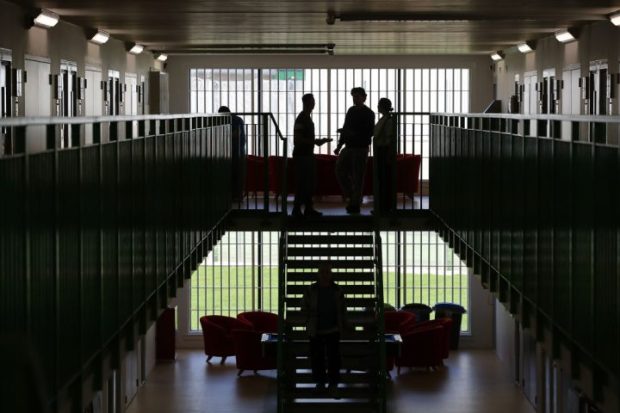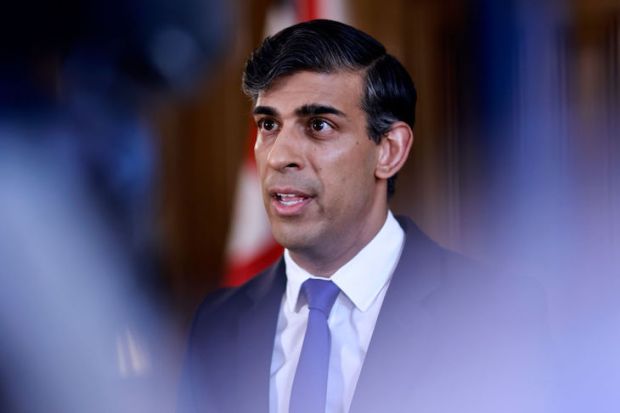It is widely observed that many Conservatives are preparing to lose power at the next general election. The Conservative Democratic Organisation and National Conservatism meetings last week are generally regarded as preparation for the leadership battle that would likely follow Rishi Sunak’s departure from No. 10. Most (though not all) Tories appear to assume that Sunak could not remain leader after that exit, nor want to.
Privately too, even the most optimistic Tories will concede that leaving government after 14 years – they’ve just beaten the New Labour tenure – has to be considered a real possibility.
What would the Conservatives do in opposition? This is not a trivial question. Conventional wisdom at Westminster says that if Keir Starmer is PM, he will not be a powerful one: he may lack a significant working majority and is a bit short on the personal charisma that can allow a leader to drive through an agenda.
But one of the biggest and least-considered constraints on the power of that much-theorised Starmer administration would be the nature of HM Opposition. What sort of Tory party would he face in the Commons?
Some rose-tinted Tories seem to believe that their party would not change much after leaving government. Talking to a few Conservatives about defeat, you sometimes get the impression they think they could calmy swap their seats in the Commons chamber for a couple of years, wait for the Starmer government to implode, then smoothly resume their place in power largely unchanged.
I think that’s unlikely. Parties that lose office, especially after long periods in office, don’t tend to act calmly or even rationally. They’re more likely to retreat into comfortable territory that cheers their remaining activists and voters and does little to win back the supporters they lost. After 1997, the Conservatives went through three comfort-zone leaders before they accepted one who actually wanted to persuade non-Tories to go blue. After 2010, Labour picked Ed Miliband as the Continuity Gordon leader, then sank into the Corbyn disaster.
The CDO and NatCon sessions offer a glimpse of some of the forces that would be unleashed after a Tory defeat. Look at those events alone and you’d expect the next Tory leadership race to be between Kemi Badenoch and Suella Braverman, competing to see who can sound toughest on wokery and immigration.
(On the latter topic, Tory orthodoxy on migration is a good sign of how the right of the party is alienated from business and its interests. See also: planning policy and Net Zero, where UK plc sees Labour as far more amenable.)
Parties that lose office, especially after long periods in office, don’t tend to act calmly or even rationally.
There could also be some sort of Boris Johnson candidate, quite possibly the man himself. Never, never underestimate his appetite or his persistence.
That prospect fills some Tories with dread though. Not all of them believe their party’s future lies on the cultural right and economic left. Whether you call them wets, One Nation or even Cameroons, there are still Tory moderates around, even if you see and hear much less of them than of their colleagues on the right.
And that points to an intriguing question about the future of the Conservatives. Where is the moderate Tory answer to the CDO and to NatCon, with big donors and the organising machinery to capture media attention and mobilise members? Where are the would-be One Nation leaders of conservativism, with undeclared campaigns already underway?
Of course, the 1NG Conservative faction has been on the back foot since the Brexit referendum and the Cameron-Osborne departure. But the Tory moderates also often lack both the organisation and inclination to match the right’s tactics: post-Brexit history shows that a relatively small group of Conservatives can set the course for the party and the country if they are prepared to die in a ditch for their cause. Yet there are no One Nation Spartans, just as there is no One Nation NatCon.
Nor are there big One Nation donors funding ginger groups that might recruit new party members. So the party in the country will remain the one that backed Boris then chose Liz Truss over Rishi Sunak when it had a say. This week I spoke to a minister on the right of the Conservative Party who cheerily observed: ‘My association members are further to the right than me, and most of our voters.’
Absent a significant change in Tory moderate tactics, organisation and outlook, any battle for the future direction of conservatism after an election defeat might well be a lop-sided one. It would leave Britain with a Conservative Party that believes it lost the 2024 election because it wasn’t right-wing enough. Such a Conservative Party as the official opposition would very likely mean that a Starmer government had more room for manoeuvre than the conventional wisdom currently expects.
Got something to add? Join the discussion and comment below.
Get 10 issues for just $10
Subscribe to The Spectator Australia today for the next 10 magazine issues, plus full online access, for just $10.




















Comments
Don't miss out
Join the conversation with other Spectator Australia readers. Subscribe to leave a comment.
SUBSCRIBEAlready a subscriber? Log in